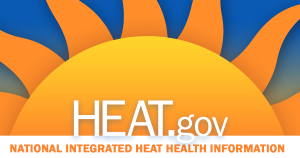July 25, 2023
The Community Health Corner

The National Extension Framework for Health Equity and Well-being recommends using community development strategies along with health literacy programs to ensure that everyone has a fair and just opportunity to be as healthy as possible. The following resources help us improve well-being for all and achieve Healthy Kansas 2030 and Healthy People 2030 objectives.
URBAN HEAT ISLANDS: Extreme heat poses a public health risk from heat-related illnesses and deaths, especially among those who work outside, athletes, pregnant people, children under 4, adults over 65, and low-income households. Urban heat islands are associated with higher heat illnesses, anxiety and increases in violence. Join Kansas City, Wyandotte and Johnson Counties, in the 2023 Heat Mapping Campaign to track the afternoon heat between the end of July and into August. Sign up now to be a Kansas City campaign volunteer. Learn more here about the nation’s heat and what can be done for you, your family and your community.
ACTS OF KINDNESS CAN ADDRESS ANXIETY: A recent study suggests doing random acts of kindness is a good way to reduce feeling depressed or anxious. Participants with medium levels of depressive or anxiety symptoms were randomly assigned to do one of three things over the course of five weeks. While acts of kindness and social activities both improved people’s sense of social support, practicing kindness improved it even more, with benefits lasting up to five weeks. Kindness can also lead to connections and increase belonging to address the epidemic of loneliness. Learn more about the study results from the Greater Good Science Center or from the research article in the Journal of Positive Psychology.
VAPE-FREE SCHOOLS and COMMUNITIES: The school year is starting soon, and with it are opportunities for students’ academic advancement, friendships, and growth. However, students will also confront the issue of vaping in and out of school. Check out the Kansas Vaping Tool-Kit from the Kansas Department of Health and Environment and an infographic that illustrates that 7% of Kansas kids reported vaping in 2021. Vaping is second only to alcohol use in terms of substances used by Kansas kids. Vaping data for 2022 is available at the National Youth Tobacco Survey (NYTS) website.
For more information, contact Elaine Johannes, ejohanne@ksu.edu; and Stephanie Gutierrez, smgutier@k-state.edu.